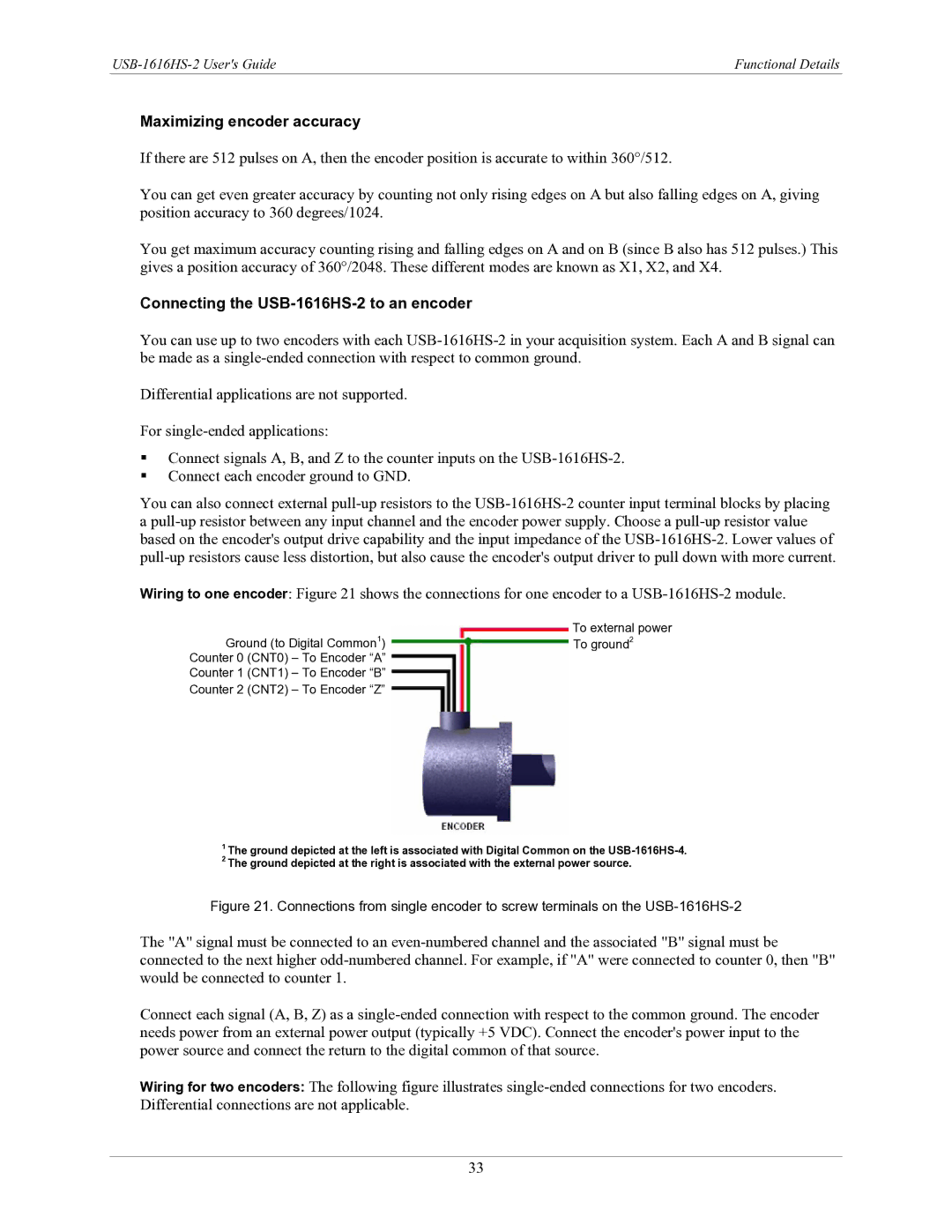
| Functional Details |
Maximizing encoder accuracy
If there are 512 pulses on A, then the encoder position is accurate to within 360°/512.
You can get even greater accuracy by counting not only rising edges on A but also falling edges on A, giving position accuracy to 360 degrees/1024.
You get maximum accuracy counting rising and falling edges on A and on B (since B also has 512 pulses.) This gives a position accuracy of 360°/2048. These different modes are known as X1, X2, and X4.
Connecting the USB-1616HS-2 to an encoder
You can use up to two encoders with each
Differential applications are not supported.
For
Connect signals A, B, and Z to the counter inputs on the
Connect each encoder ground to GND.
You can also connect external
Wiring to one encoder: Figure 21 shows the connections for one encoder to a
To external power
Ground (to Digital Common1)To ground2
Counter 0 (CNT0) – To Encoder “A”
Counter 1 (CNT1) – To Encoder “B”
Counter 2 (CNT2) – To Encoder “Z”
1The ground depicted at the left is associated with Digital Common on the
2The ground depicted at the right is associated with the external power source.
Figure 21. Connections from single encoder to screw terminals on the USB-1616HS-2
The "A" signal must be connected to an
Connect each signal (A, B, Z) as a
Wiring for two encoders: The following figure illustrates
33
